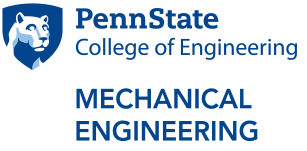The Interplay of Nonlinearity and Noise in Tiny Resonators
ABSTRACT: Small vibrating structures with dimensions on the scales of micro and nano-meters are playing increasingly important roles in sensing and time-keeping technologies. These tiny resonators can operate in the radio frequency range and typically have extremely light damping. Due to their size, these devices are highly susceptible to nonlinearities and noise that limit their performance. This presentation will provide an overview of the physical sources of these effects and demonstrate how a fundamental understanding of their consequences can play an important role in improving system performance.
Acknowledgments: This work is supported by grants from the NSF and is carried out in close collaboration with theory groups led by Mark Dykman at Michigan State and Oriel Shoshoni at Ben Gurion and experimental groups led by Daniel López at Penn State, Tom Kenny at Stanford, and Philip Feng at Florida.
BIOGRAPHY: Steve Shaw is Harris Professor of Mechanical Engineering at Florida Institute of Technology and University Distinguished Professor Emeritus of Mechanical Engineering and Adjunct Professor of Physics at Michigan State University. He received his Ph.D. in Theoretical and Applied Mechanics from Cornell University in 1983. His research focuses on the understanding and utilization of nonlinear behavior in engineering systems with current interests in nonlinearity and noise in small scale resonators and the dynamics of torsional vibration absorbers. Steve is an ASME Fellow and recipient of several awards, notably the H. Hess, N. O. Myklestad, and T. K. Caughey Awards from ASME.
Event Contact: Serena Sidwell


